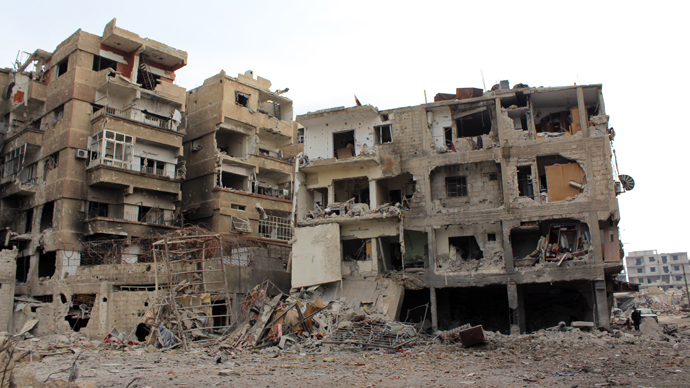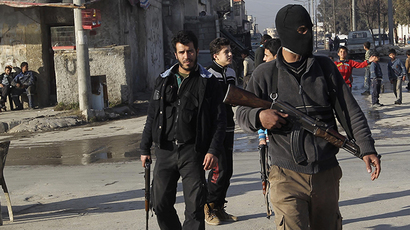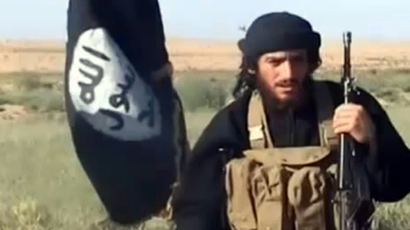UN documents war crimes on both rebel and govt side as Syria crisis persists

More tortures and murders, committed by both the rebels and government forces, were revealed by UN war crimes specialists in Syria. The UN believes these crimes could successfully be taken up by the International Criminal Court.
A fourth and confidential list of war crimes suspects has been compiled since July, said Karen Koning AbuZayd, an American expert serving on the UN independent commission of inquiry.
In particular, foreign insurgents in Syria have their "own agenda", she stated, which includes founding sharia courts that hand down sentences and carry them out on the spot.
"Civil wars can be pretty bad, but people coming in from outside with radical agendas really don't give a damn what they do to things or people in that wonderful country that Syria was," AbuZayd told Reuters.
In September, the UN specialists said that the militants stepped up killings, executions and abuses in the north.
"Since there is tension between and among the various opposition groups, we're getting more information about opposition groups from other opposition groups. So there is more information on both sides now," AbuZayd pointed out.
Russia has warned about the insurgents’ actions many times. Russian Foreign Minister Sergey Lavrov told RT, in an exclusive interview, that the militant groups only worsen the plight of the war-torn country.
“In reality the humanitarian crisis is getting worse mostly because of the militants, because of those groups which many countries have officially recognized as extremist and terrorist. So we do need to address humanitarian issues, but instead of fighting symptoms we should root out the cause of the crisis,” Lavrov said. “And the root cause of the crisis is that the terrorist threat is extremely serious in Syria today.”
“Another concern is that we see among the rebels an increasing number of jihadists who pursue extremist objectives. They want to set up a caliphate and impose sharia laws, and basically they are already terrorizing minorities,” he added.
In December, UN human rights chief Navi Pillay said that evidence collected by the investigators implicates President Bashar Assad. But she later denied that she had direct knowledge of the report.
AbuZayd only said the lists went up to "higher levels" of the Syrian government, but did not elaborate.
On the other hand, the UN experts could not so far confirm earlier reports by CNN and the Guardian, implicating Assad’s government in the torture and deaths of about 11,000 detainees. The news outlets said they possessed some 55,000 pictures, allegedly taken by a Syrian military police photographer, showing the mutilated bodies of the purported victims.
"For us of course it is also a single source, which we wouldn't use because it is only a single source," AbuZayd stressed.
All in all, the researchers’ team of more than 20 investigators interviewed 500 refugees, defectors and people still in Syria since July, bringing the total number of testimonies gathered to 2,600 since September 2011, Reuters reported.
Over 130,000 people are believed to have died since the country’s civil war broke out in 2011. Nearly a third of Syria’s 22 million residents have been forced to flee their homes, and half are in need of international aid, according to Reuters.














